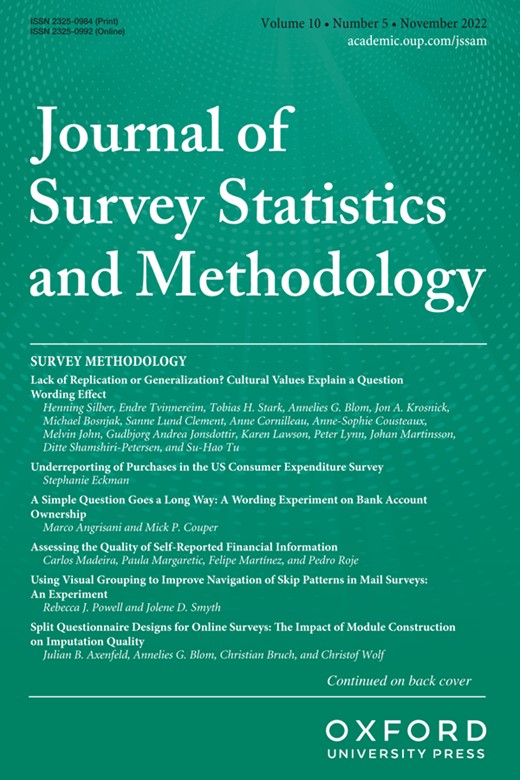-
Views
-
Cite
Cite
Robert H Lyles, Yuzi Zhang, Lin Ge, Cameron England, Kevin Ward, Timothy L Lash, Lance A Waller, Using Capture–Recapture Methodology to Enhance Precision of Representative Sampling-Based Case Count Estimates, Journal of Survey Statistics and Methodology, Volume 10, Issue 5, November 2022, Pages 1292–1318, https://doi.org/10.1093/jssam/smab052
Close - Share Icon Share
Abstract
The application of serial principled sampling designs for diagnostic testing is often viewed as an ideal approach to monitoring prevalence and case counts of infectious or chronic diseases. Considering logistics and the need for timeliness and conservation of resources, surveillance efforts can generally benefit from creative designs and accompanying statistical methods to improve the precision of sampling-based estimates and reduce the size of the necessary sample. One option is to augment the analysis with available data from other surveillance streams that identify cases from the population of interest over the same timeframe, but may do so in a highly nonrepresentative manner. We consider monitoring a closed population (e.g., a long-term care facility, patient registry, or community), and encourage the use of capture–recapture methodology to produce an alternative case total estimate to the one obtained by principled sampling. With care in its implementation, even a relatively small simple or stratified random sample not only provides its own valid estimate, but provides the only fully defensible means of justifying a second estimate based on classical capture–recapture methods. We initially propose weighted averaging of the two estimators to achieve greater precision than can be obtained using either alone, and then show how a novel single capture–recapture estimator provides a unified and preferable alternative. We develop a variant on a Dirichlet-multinomial-based credible interval to accompany our hybrid design-based case count estimates, with a view toward improved coverage properties. Finally, we demonstrate the benefits of the approach through simulations designed to mimic an acute infectious disease daily monitoring program or an annual surveillance program to quantify new cases within a fixed patient registry.







